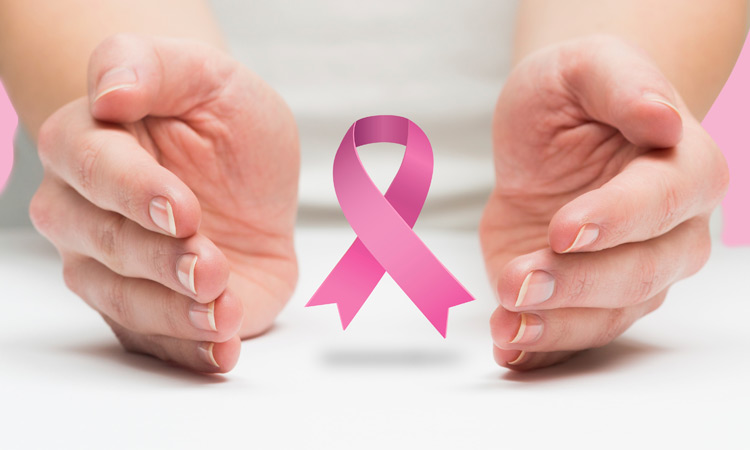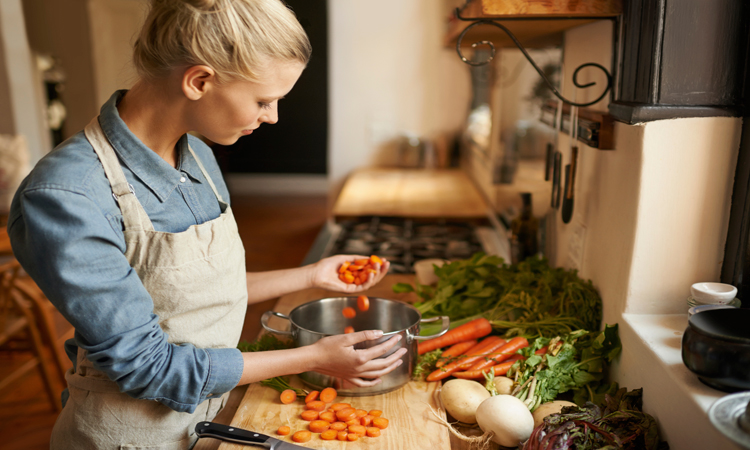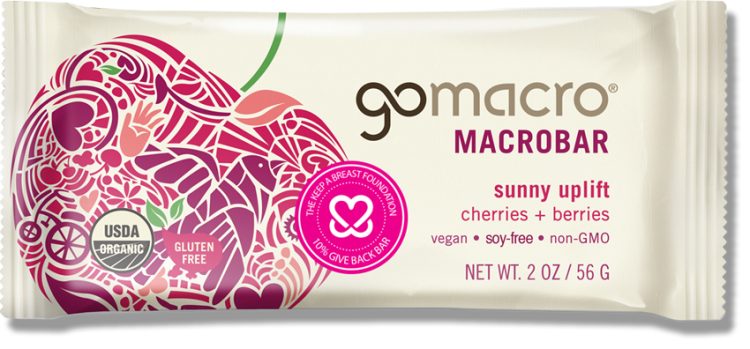GoMacro Offers Positive and Proactive Advice to Women
In light of breast cancer awareness month, Rewire Me sat down with the co-founders of GoMacro – Jola and her mother, Amelia – who both began a macrobiotic diet when Amelia was diagnosed with breast cancer in 2003.
RW: Every year, thousands of women are diagnosed with breast cancer. How did you stay positive during your diagnosis and what advice would you give to women currently going through this?
GoMacro:
Amelia: My advice to women going through a diagnosis is threefold. First, get as much support from family and friends as you can. Secondly, find something to help you relax and keep you positive. I did yoga and meditation, and my interest in macrobiotics helped to focus my attention away from cancer to something hopeful and positive. Finally, do your research. It is nice to be informed when you talk to your doctor, and as you learn more you will become an active participant in your cure. This learning process can provide you with lifelong interests and new goals in your life.
RW: After your breast cancer diagnosis in 2003 you underwent brachytherapy and a lumpectomy. What inspired you to switch to a macrobiotic diet instead of further drug treatment? What types of foods did you eliminate?

GoMacro:
Amelia: I switched to a macrobiotic diet after meeting a distant family member who had received a terminal lymphoma diagnosis 10 years ago and, after switching to a macrobiotic diet, is still doing well today. Hearing her story gave me the confidence I needed, and Jola joining me through the process made it more interesting and doable. I knew that my other option was to take the drugs that the doctors suggested for a period of five years, and the side effects of those would have been much worse.
For cancer patients, the macrobiotic diet is strict. I eliminated all meat, dairy, fish, sugar, fat and processed foods. I was on the diet for almost a year, and as I got better, I started to slowly add back in some of the foods that I missed. I also started to make the macrobiotic desserts that became the start of GoMacro.
RW: How did your body react to changing your diet so drastically? Any recommendations to other people who want to change their diet in order to regain their health?
 Seeds of ChangePrisons are known for steel bars and concrete. But ABC News reports that dozens of detention centers across the U.S. have begun cultivating gardens—with benefits for inmates and surrounding communities. Prisoners practice discipline and hone skills that can serve them after their release, and the gardens produce food for the prison system as well as surplus crops that go to charity. Beth Waitkus, director of the gardening program at San Quentin State Prison in California, told ABC that inmates who enroll in her program are more likely than non-gardening inmates to steer clear of crime and hold down jobs after they leave prison. “We believe that everybody has a heart and everybody has a chance for transformation,” she said.
Seeds of ChangePrisons are known for steel bars and concrete. But ABC News reports that dozens of detention centers across the U.S. have begun cultivating gardens—with benefits for inmates and surrounding communities. Prisoners practice discipline and hone skills that can serve them after their release, and the gardens produce food for the prison system as well as surplus crops that go to charity. Beth Waitkus, director of the gardening program at San Quentin State Prison in California, told ABC that inmates who enroll in her program are more likely than non-gardening inmates to steer clear of crime and hold down jobs after they leave prison. “We believe that everybody has a heart and everybody has a chance for transformation,” she said.
GoMacro:
Amelia: Although it was a drastic change from the diet I had been used to, I did not experience any other side effects other than weight loss. As my body healed I regained my energy, felt better than I had prior to the cancer, and developed a new interest in nutrition and health.
The most important recommendation to anybody wanting to change their diet is to do it slowly and to pay attention to effects. I did it gradually over a three-month period. It became a new way of life, but it wouldn’t be doable overnight. As you change the food you eat, try to understand the effects of food on your body and create a healthy balance between what you eat and other influences such as, exercise, stress and work.
RW: Before you guys started GoMacro as a mother-daughter team, Amelia was a retired architect and Jola was a teacher. Had you guys ever dreamt about starting a company together?
GoMacro:
Amelia: Before being an architect I had experience owning and building a business, but I had never really thought about doing it again. You never know where life will take you, but I couldn’t have dreamt of anything better than what I have experienced with my daughter, Jola, these last 12 years.
Jola: Honestly, I was very happy as a teacher and had never really thought about starting my own business. My mom and I have always been close, and I’ve always admired her ability to learn and master anything she put her heart into. Building GoMacro together has taken our mother-daughter relationship to a whole new level of admiration, respect and friendship.
RW: In this day and age, there are a million breast cancer non-profit organizations. Why did you decide to donate 10 percent of the proceeds from the Cherries + Berries Give Back MacroBar to The Keep A Breast Foundation?
GoMacro:
There are many organizations that put their funding to research and how to support women after a diagnosis, but we wanted to find an organization that would support women before a diagnosis with awareness and education. There is so much one can do to live a healthy life and prevent certain types of cancer, so when we discovered The Non Toxic Revolution through the Keep A Breast Foundation, we knew it was a perfect fit.
Contact GoMacro at https://gomacro.com/




